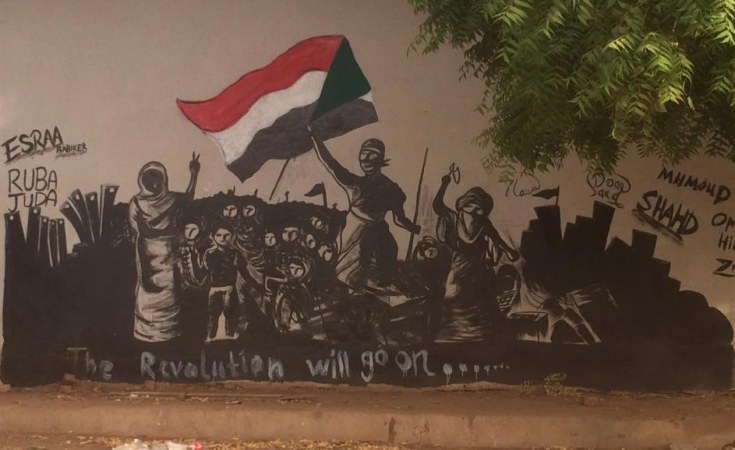Explosions rocked the Sudanese capital Khartoum on Monday as fighting between the regular army and paramilitaries raged for a third day, with the confirmed civilian death toll rising to nearly 100.
The violence erupted on Saturday after weeks of power struggles between Sudan's army chief Abdel Fattah al-Burhan and his deputy, Mohamed Hamdan Daglo, who commands the powerful paramilitary Rapid Support Forces (RSF).
The fighting triggered an international outcry with appeals for an immediate ceasefire and dialogue.
"The death toll among civilians in clashes since violence began on Saturday ... has reached 97," a local doctors' union said in a statement early Monday, noting that the figure does not include all casualties as many could not reach hospitals due to transport difficulties caused by the fighting.
The union said hundreds of civilians had been wounded.
Gunfire and explosions were heard in the streets of Khartoum on Monday morning as clashes continued, according to journalists working for the AFP news agency.
The fighting broke out after disagreements between Burhan and Daglo over the planned integration of the RSF into the regular army, a key condition for a final deal aimed at ending the crisis which followed the 2021 military coup they orchestrated together.
That coup derailed a transition to civilian rule following the 2019 ouster of president Omar al-Bashir and added to the spiralling economic crisis in Sudan.
Fighting spreads beyond Khartoum
Fighting also raged in others parts of Sudan including the western Darfur region and in the eastern border state of Kassala.
The Saturday killing of three staff from the World Food Programme in North Darfur prompted the agency to suspend all operations in the country.
Medics have pleaded for safe corridors for ambulances and a ceasefire to treat the victims because the streets are too dangerous for transporting casualties to hospital.
The latest violence sparked by the two generals has reflected the deep-seated divisions between the regular army and the RSF.
Despite calls for a ceasefire, the two generals appeared in no mood for talks.
Burhan, who rose through the ranks under the three-decade rule of now-jailed Bashir, has said the coup was "necessary" to ensure the inclusion of more factions in politics.
Daglo later called the coup a "mistake" that had failed to bring about change and had reinvigorated remnants of Bashir's regime ousted by the army in 2019.


